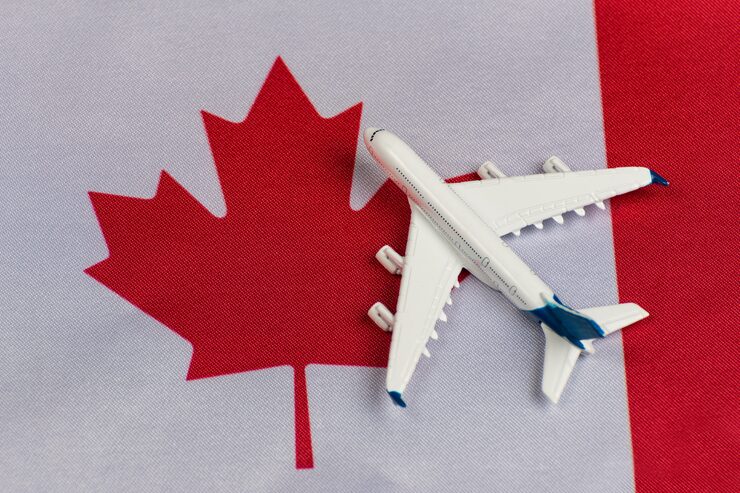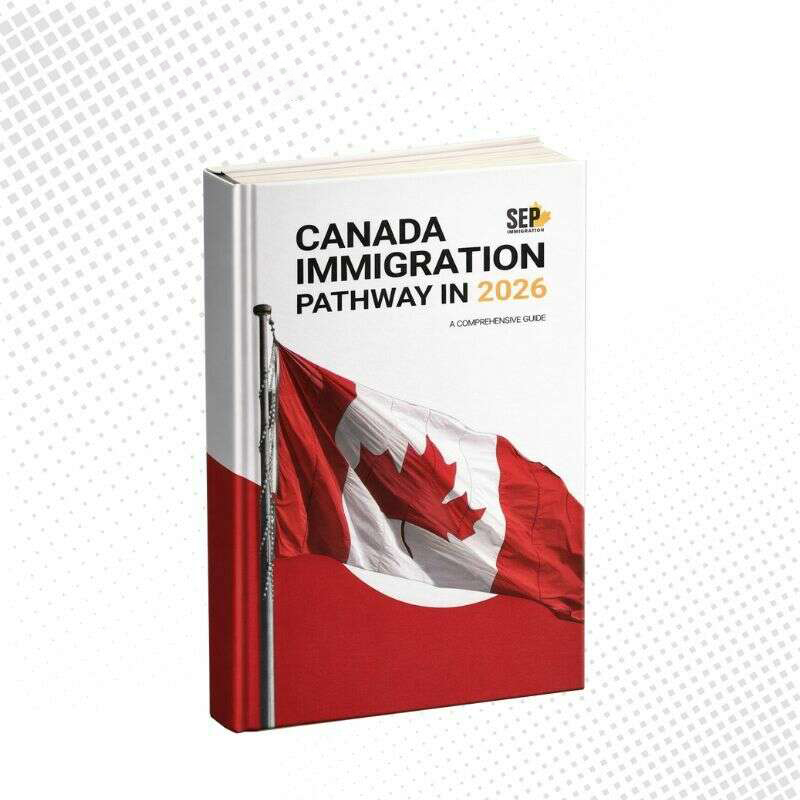
Common-law sponsorship in Canada allows a Canadian citizen or permanent resident to sponsor their common-law partner for permanent residency. This type of sponsorship applies to couples who have been living together for at least one continuous year in a conjugal relationship.
Unlike other types of sponsorships like Dependent Sponsorship, this focuses on couples who meet specific criteria. Let’s explore the key aspects of common-law sponsorship, its requirements, and processing times.
Table of Contents
ToggleAssessing a Common-Law Partnership
In the eyes of Canadian immigration authorities, a common-law partnership is defined by cohabitation for at least one year. Cohabitation means living together in a committed, marriage-like relationship where both partners share responsibilities and set up a household together.
This can involve combining finances, sharing a residence, and being seen as a couple socially and legally. It’s important to note that temporary separations, such as for work or family obligations, are permissible as long as there’s evidence showing the intention to continue the relationship. This is unlike Parents Sponsorship, where a different set of criteria apply.
The burden of proof lies on the couple to demonstrate the authenticity of their relationship, often through documents like joint bank accounts, shared leases, or bills with both partners’ names.

Common-Law Sponsorship Requirements
Sponsoring a common-law partner requires both parties to meet specific criteria. The sponsor must be at least 18 years old and a Canadian citizen or permanent resident residing in Canada.
They must not be receiving social assistance (with exceptions for disability support) and need to show they can financially support their partner. The applicant must prove that they have been living with the sponsor for at least one continuous year in a conjugal relationship.
Documentation is key in this process. Evidence such as shared utility bills, joint bank statements, lease agreements, and affidavits from friends or family can help establish the validity of the relationship.
Both partners should ensure they have a thorough and well-organized set of documents before applying to avoid delays or complications in the process.
Common-Law Sponsorship Processing Times
The processing times for common-law sponsorship applications can vary depending on several factors, including the applicant’s location and the complexity of their case. Generally, applications from couples living together in Canada are processed more quickly than those from partners living apart.
On average, processing takes about 12 months, but this timeframe can fluctuate. If your application involves aspects similar to Relative Sponsorship, there might be additional considerations for processing times.
Factors such as incomplete applications, additional documentation requests, or high application volumes can cause delays. It’s crucial to submit a complete and accurate application to facilitate a smoother process.

Can I Bring My Common-Law Partner Canada Student Visa?
If you are in Canada on a student visa, you can bring your common-law partner with you. Your partner can apply for an open work permit, allowing them to work while you study.
To qualify as a common-law partner, you need to prove that you’ve been living together for at least one year before applying. Ensure you have the required documentation to support your claim of cohabitation, as this will be necessary when submitting the visa application.

Stronger Common-Law Sponsorship Applications: Key Documents
Applying for common-law sponsorship in Canada isn’t just about filling out forms. You need solid proof that your relationship is real and ongoing. Immigration officers look for evidence that shows you live together, share finances, and have long-term plans. Submitting strong documents can make all the difference in getting your application approved.
The most important requirement is proving that you and your partner have lived together continuously for at least a year.
A rental agreement or mortgage in both names is the best way to show this, but utility bills, and government correspondence can also help. If you don’t have these, a combination of other documents showing the same address, like delivery receipts or letters, can work.
Financial ties strengthen your case. Joint bank accounts, shared credit cards, and co-signed loans show that you manage your finances together. If you don’t have shared accounts, proof of one partner regularly transferring money for rent or bills can demonstrate financial dependence.
Some couples include a record of shared expenses, like groceries or streaming services, to show they contribute equally to daily living costs.
If you own property together, that’s one of the strongest proofs of commitment. Mortgage documents or property tax statements with both names make it clear that your financial lives are intertwined. Even if you don’t own a home, co-owning something valuable, like a car, helps demonstrate long-term investment in the relationship.
Naming each other in legal documents is another sign of commitment. Life insurance policies and wills that list one another as beneficiaries show that you plan for the future together. If you don’t have these, any official paperwork recognizing your partner as a dependent can serve a similar purpose.
Immigration officers also want to see how you manage everyday responsibilities as a couple. If you split bills or have joint memberships, such as a gym or subscription service, those can help demonstrate your shared life. Even informal agreements, like messages about splitting costs or managing household tasks, can add weight to your application.
Letters from friends and family members can make your application stronger. These affidavits should describe how long they’ve known you as a couple and provide examples of your relationship. Having multiple letters from different people, especially those who have seen you living together, can help establish credibility.
If you’ve ever had to spend time apart, showing that you stayed in touch is useful. Phone call logs, texts, and emails prove that you maintained a close connection even when separated. Screenshots of conversations, particularly ones discussing your future together, can support your case.
Photographs help tell your story. Immigration officers don’t just want posed couple photos—they want to see real moments from your relationship. Candid pictures at home, with family, and at different events show the natural progression of your partnership.
Social media can be another form of proof. If you’ve posted about your relationship or shared major milestones online, screenshots of these posts may help. Publicly acknowledging each other as partners adds legitimacy to your case, especially when others interact with your posts.
A strong common-law sponsorship application should provide a full picture of your relationship. The more well-documented your life together is, the better your chances of approval. Immigration officers need to be convinced that your relationship isn’t just on paper—it’s a genuine and committed partnership. Let me know if you want to refine or add anything.
Contact Us

Common Mistakes That Cause Sponsorship Rejections
Applying for common-law sponsorship seems straightforward, but small mistakes can lead to rejection. Many couples assume their relationship proof is strong enough, only to find out later that they missed key details. Immigration officers follow strict guidelines, and any gaps or inconsistencies in your application can raise red flags.
One of the most common reasons applications get rejected is weak proof of living together for at least 12 months. Just listing the same address isn’t enough—you need solid evidence like a lease, utility bills, and official mail showing both names. Some couples live together but don’t combine their finances or put both names on documents, making it harder to prove cohabitation.
Financial proof is another area where many applicants fall short. A shared bank account isn’t required, but it helps. If you don’t have one, you’ll need to provide other proof, like joint expenses, money transfers, or shared bills. If your finances are completely separate, immigration officials may question the seriousness of your relationship.
Even small inconsistencies in your paperwork can lead to rejection. If the dates on your forms don’t match your supporting documents, it can create doubts. Something as simple as a different address on one document can cause delays or suspicions. Double-checking that all your paperwork is lined up is crucial.
Many applicants also make the mistake of submitting weak relationship proof. Some rely only on photos, which are helpful but not enough on their own. Immigration officers want to see depth—proof that you’ve traveled together, attended events as a couple, and interacted with each other’s family and friends. If your evidence is too limited, your application may be seen as lacking credibility.
Personal affidavits from friends and family can strengthen your case, but generic letters won’t help much. Statements should include real details—how long the person has known you, times they’ve spent with you as a couple, and why they believe your relationship is real. A few strong, detailed letters are far better than several vague ones.
Forgetting to translate documents is another common issue. You need an official translation if any of your papers are in a language other than English or French. Immigration officers won’t process documents they can’t read, and missing translations can cause delays or outright refusals.
Missing information or submitting an incomplete application can lead to an automatic rejection. Some couples think they can send missing documents later, but immigration officials often refuse incomplete applications without asking for additional proof. Double-checking that everything is included before submitting is essential.
Not keeping copies of your application can make things difficult if you need to appeal. If your application is refused or delayed, having a full record of what you submitted helps you figure out what went wrong. Saving both digital and printed copies ensures you’re prepared for any follow-ups.
Failing to report changes in your situation can also cause problems. If you move, change jobs, or experience a major life event while your application is being processed, you need to inform Immigration Canada. Not doing so can create complications or even lead to rejection.
Avoiding these mistakes can strengthen your sponsorship application. Taking the time to double-check your documents, provide strong evidence, and follow all instructions carefully increases your chances of approval. Let me know if you’d like to adjust or expand on anything.

How Long Must You Live Together for Sponsorship?
To qualify for common-law sponsorship in Canada, you and your partner must have lived together for at least 12 consecutive months. This means sharing a home and daily responsibilities without any long breaks apart.
Short separations for work, family emergencies, or vacations are fine, but extended periods of living separately can break the cohabitation requirement.
The 12-month period doesn’t have to be spent in the same apartment or house. If you’ve moved during that time, you need proof that you continuously lived together. Things like joint lease agreements, utility bills, or official mail sent to both of you at different addresses can help show that you maintained a shared household.
Some couples struggle to meet the cohabitation requirement because of immigration restrictions, cultural reasons, or legal barriers. If this applies to you, you might have to apply under the conjugal partner category instead. This option is for couples who are in a committed relationship but haven’t been able to live together due to serious obstacles.
However, conjugal partner sponsorship is harder to get approved since you need to prove that living together wasn’t possible, not just inconvenient.
Immigration officers want solid proof that your relationship is genuine and long-term. Providing financial records, shared responsibilities, and evidence that others recognize you as a couple strengthens your case. The more complete your documentation, the smoother the application process will be. Let me know if you’d like any clarifications or additions.
What to Do if Your Sponsorship Application Is Refused
Getting a refusal on a common-law sponsorship application is frustrating, but it’s not the end of the road. Many couples face setbacks in the process, and there are ways to fix the issues and try again. The key is to understand why the application was denied and take the right steps to strengthen your case.
Find Out Why It Was Refused
The first thing you should do is carefully read the refusal letter. Immigration Canada will explain why they rejected your application, and this information is critical for deciding what to do next.
Common reasons for refusal include weak proof of your relationship, missing documents, or inconsistencies in the information you provided. Sometimes, the issue is simply that officers weren’t convinced that your relationship is genuine. Whatever the reason, knowing exactly what went wrong will help you move forward.
Can You Appeal the Decision?
Your options after a refusal depends on whether your application was processed from inside or outside Canada. If you applied from outside Canada (outland sponsorship), you have the right to appeal the decision within 30 days.
The Immigration Appeal Division (IAD) will review your case, and you can submit new evidence to support your relationship. An appeal can be a long process, so it’s a good idea to get professional advice from an immigration lawyer.
If you applied from inside Canada (inland sponsorship), you can’t appeal. Your main option is to submit a new application. Before you do that, make sure you’ve addressed the reasons for the initial refusal. If weak relationship proof was the problem, gather stronger evidence before reapplying.

Strengthen Your Proof of Relationship
If your application was refused because immigration officers didn’t find enough proof of your relationship, you’ll need to provide stronger evidence. This could include:
- More financial records showing shared expenses
- Additional photos of you together at different times and places
- Letters from friends and family confirming that your relationship is real
- Proof of communication, like chat logs or emails, especially if you’ve been apart for any period
- Travel records show visits to see each other or vacations together
Get Professional Help
An immigration lawyer or consultant can help if you’re unsure how to move forward. They can review your refusal letter, point out weaknesses in your previous application, and guide you on what documents to submit next. If you’re filing an appeal, legal help is especially useful because the process can be complex.
Act Quickly
Time matters after a refusal. If you’re eligible to appeal, you only have 30 days to file the request. Even if you’re reapplying, it’s best to start gathering evidence as soon as possible so you’re not delayed further. Waiting too long could also mean needing to submit updated documents, which adds extra work.
Stay Positive and Keep Trying
A refusal can be discouraging, but it doesn’t mean you can’t succeed. Many couples have had their sponsorship applications rejected at first but were approved on a second attempt. The key is to learn from the refusal, make the necessary changes, and submit a stronger application.
Immigration officers are simply doing their job to prevent fraud, and as long as your relationship is real, you have every chance of getting approved.
Rights and Benefits for Common-Law Partners in Canada
Being in a common-law relationship in Canada comes with legal rights and benefits, but these vary depending on the province or territory. While some protections are similar to those of married couples, others require extra legal steps to secure. Understanding these differences can help couples plan ahead and protect their interests.
Property Rights
Common-law partners don’t always have the same property rights as married couples. In some provinces, like British Columbia, once you’ve lived together for two years, you’re entitled to an equal share of all the assets gained during the relationship. That means if you buy a house together or invest in something as a couple, both partners have a claim to it.
Other provinces, like Ontario, don’t automatically grant property rights to common-law couples. If you break up, each person keeps whatever they own, even if they lived together for years.
If one partner wants a share of the other’s property, they often have to go through a legal claim, which can be complicated. The best way to avoid issues is to have a cohabitation agreement that outlines what happens if the relationship ends.
Send us a Email
Spousal Support
In many provinces, common-law partners can receive spousal support after a breakup, but they must meet certain conditions.
In Ontario, for example, you need to have lived together for at least three years or have a child together and be in a long-term relationship. If one partner is financially dependent on the other, they may be entitled to support, just like in a marriage. The length of the relationship and the financial situation of both partners play a big role in whether support is granted.
Inheritance Rights
Unlike married couples, common-law partners don’t always have automatic inheritance rights. In some provinces, if one partner passes away without a will, the surviving partner may inherit part of their estate.
However, in many areas, common-law spouses have no legal right to their partner’s assets unless they are specifically named in a will. This makes estate planning essential for common-law couples—without a clear will, the surviving partner could be left out entirely.
Medical Decision-Making
In some provinces, common-law partners can make medical decisions for each other in emergencies. Others don’t automatically have that right unless they have legal documents like a power of attorney for personal care.
Without this, a hospital may turn to the patient’s legal next of kin, which could be a parent or sibling instead of their partner. To avoid complications, it’s a good idea to put legal paperwork in place so there’s no confusion if a medical emergency happens.
Pension and Work Benefits
For government pensions, common-law partners are usually treated the same as married couples. The Canada Pension Plan allows common-law partners to split pension benefits or receive survivor benefits if one partner passes away.
Many workplace benefits programs also recognize common-law partners, offering them extended health insurance, dental coverage, and other benefits. However, not all employers automatically include common-law spouses, so it’s worth checking company policies to make sure you’re covered.

Taxes and Financial Benefits
For tax purposes, the Canada Revenue Agency (CRA) considers common-law partners the same as married couples. This means that once you’ve lived together for 12 months, you have to report your partner’s income on your tax return. This can affect benefits like the GST/HST credit or the Canada Child Benefit, which are based on household income.
While this could mean lower benefits in some cases, it also opens up tax credits and deductions that couples can claim together.
Maintaining Common-Law Status While Living Apart
Living together for at least 12 months is a key requirement for common-law status in Canada. But what happens if you and your partner have to live apart temporarily? Work, family obligations, or unexpected life events can sometimes make it necessary to be in different locations. If that happens, it’s important to show that your relationship is still strong and that you plan to reunite soon.
Can You Be Common-Law If You Don’t Live Together?
A temporary separation won’t automatically break your common-law status if there’s a valid reason for the time apart. For example, suppose one partner must work in another city for a few months or care for a sick relative. In that case, Immigration Canada won’t automatically assume the relationship is over. What matters is that both partners still see themselves as a couple and have a plan to live together again.
Long-term separations, on the other hand, can cause problems. If there’s no clear plan for reuniting or if communication starts to fade, it becomes harder to prove that the relationship is still ongoing. Immigration officers may question whether the partnership is truly committed, which can affect things like sponsorship applications.
How to Prove Your Relationship is Still Strong
If you and your partner have to live apart for some time, you’ll need to show that your relationship is still genuine. The best way to do this is by keeping records of your ongoing communication and financial support. This can include:
- Phone and video call records – Showing that you stay in regular contact.
- Text messages and emails – Proof that you continue checking in and discussing your future.
- Money transfers and shared expenses – If you’re helping each other financially, keep records of payments or joint bills.
- Travel records – If you visit each other during the separation, save flight tickets, hotel bookings, and photos from your time together.
- Letters from friends and family – Statements confirming that people close to you still see you as a couple.
Showing That You Plan to Reunite
Another important factor is proving that you intend to live together again as soon as possible. Immigration officers want to see that the separation is only temporary and that you’re making real plans to reunite. Some ways to show this include:
- A lease or mortgage in both names – Proof that you have a home waiting for both of you.
- Job applications or offers – If one partner is moving to join the other, job-related documents can support that.
- Moving plans – Emails about apartment hunting, hiring movers, or making travel arrangements.
Understanding the Legal Side
Different provinces have different rules when it comes to common-law relationships. At the federal level, Canadian immigration law requires that you’ve lived together for at least a year before you can apply for sponsorship as common-law partners. Some provinces also grant rights similar to marriage after a certain period of cohabitation, while others don’t.
If you’re dealing with a legal issue, like sponsorship or property rights, getting advice from an immigration expert or lawyer can help you understand what applies to your situation.
Keeping Your Common-Law Status Strong
If life circumstances mean you and your partner have to live apart for a while, that doesn’t mean your relationship is no longer valid in the eyes of immigration authorities. The key is to stay connected, keep communication records, and show that you’re actively planning to reunite.
As long as you continue to support each other and provide evidence of your commitment, your common-law status can remain intact.
Inland vs. Outland Sponsorship Options
It is important to choose the right path when sponsoring your common-law partner. Inland and outland sponsorship options cater to different situations and offer unique advantages.
Inland sponsorship works well for couples living together in Canada. Your partner may qualify for an open work permit under this option. This permit lets them work for any employer while their application is processed. It provides financial stability and helps them settle into Canadian life. However, inland sponsorship requires your partner to remain in Canada. If they need to travel, this option may not be ideal for you.
Outland sponsorship is better for partners who live outside Canada or need mobility. It also allows your partner to apply from abroad, even if they occasionally visit Canada. Processing times for outland sponsorships depend on the visa office handling the application. Some offices may process applications faster, while others may take longer.
Both options require couples to prove the authenticity of their relationship. Gather evidence like joint bank statements, shared leases, or utility bills. Photos and affidavits from friends or family also strengthen your case.
Choosing between inland and outland sponsorship depends on your situation. Inland sponsorship offers more stability for couples already living in Canada, while outland sponsorship is more flexible for partners who travel or reside apart. Understand both options before deciding to avoid unnecessary stress or delays.
Plan carefully and ensure all documents are accurate and complete. This will help avoid delays and make the application process smoother. Preparation is key to success in any route you choose.
Financial Support Obligations for Sponsors
Sponsoring your partner is more than an application; it’s a financial commitment. Canadian immigration requires sponsors to provide for their partner’s basic needs. This includes food, housing, clothing, and other necessities not covered by healthcare. Sponsors must prove they can meet these needs during the sponsorship period.
The sponsorship agreement lasts for three years. This timeframe begins the day your partner becomes a permanent resident. If your partner uses social assistance during this time, you must repay the government. This rule applies even if your relationship ends before the three years are over.
To sponsor your partner, you must meet specific eligibility criteria. You need to be at least 18 years old and either a Canadian citizen, permanent resident, or someone registered under the Indian Act. Sponsors cannot receive social assistance except for disability support. While there’s no minimum income requirement, your financial stability is evaluated.
Immigration authorities may request proof of your income and financial resources. Prepare documents like pay stubs, tax returns, and bank statements. These demonstrate your ability to fulfil your obligations as a sponsor.
It’s essential to understand the implications of this commitment fully. If you’re unsure about your ability to provide support, consult an expert. Planning ensures you meet all requirements and avoid complications later.
By fulfilling your obligations, you help your partner settle in Canada successfully. Your financial support lays the foundation for a stable and happy future.
Book Free Assessment
Eligibility for Open Work Permits During Sponsorship
Inland sponsorship allows your partner to apply for an open work permit. This option helps your partner work in Canada while waiting for residency approval. The permit is flexible, allowing them to work for any employer.
The open work permit reduces financial pressure for both partners. It also provides an opportunity for your partner to gain Canadian work experience, which helps them integrate into Canadian society and workplace culture.
To qualify, your partner must apply under the inland sponsorship program. You can include the work permit application with the sponsorship application. This approach often leads to faster processing and fewer delays. However, applying for a work permit later might extend wait times.
Immigration authorities carefully review applications to confirm eligibility. You must provide proof of your relationship and cohabitation. Supporting documents like joint utility bills, leases, or bank statements. Any missing documents can delay the process significantly.
It’s worth noting that this option is not available for outland sponsorship. Couples should consider the importance of work opportunities when choosing their pathway. Inland sponsorship offers a distinct advantage with the open work permit option.
The permit benefits go beyond financial gains. It gives your partner the chance to connect with their community. Working also helps them build confidence and feel more independent. These advantages make the transition to permanent residency smoother for both of you.
Prepare thoroughly and ensure all documents are accurate. This will avoid delays and speed up the process. The open work permit is a great step toward building your partner’s new life in Canada.
Recent Changes to Spousal Open Work Permit Rules
Canada recently updated its spousal open work permit eligibility rules. These changes aim to make it easier for partners to work in Canada, which is especially beneficial for international students and their partners.
Under the new rules, sponsored partners of international students can apply for open work permits. These permits allow them to work for any employer in Canada. Previously, the eligibility criteria were stricter and excluded many applicants. The updated rules are more inclusive and accommodate a wider range of relationships.
Another change involves processing times for open work permits. Immigration authorities are working to make the process faster, reducing applicants’ wait times. Faster approvals help partners start working sooner, easing financial burdens.
Additionally, eligibility now extends to partners of specific temporary residents. For example, the partners of certain work permit holders are now eligible. This change broadens opportunities for families living in Canada temporarily and strengthens Canada’s commitment to supporting family reunification.
Applicants still need to prove their relationship meets the required criteria. Proof of a common-law partnership or marriage is mandatory. Documents such as shared leases, joint bank statements, and utility bills are helpful. Affidavits from friends or family can also support the application.
These updates reflect Canada’s efforts to attract skilled workers and students. By allowing their partners to work, the country ensures financial stability for families and encourages long-term settlement and economic contribution.
If you’re planning to apply, stay updated on the latest rules. Carefully prepare your documents to avoid delays. Consulting an immigration expert can help ensure your application meets the requirements. With these changes, Canada is paving the way for smoother integration of partners into the workforce.
Legal Definition and Proof of Common-Law Relationships
In Canada, proving a common-law relationship requires specific evidence. Immigration authorities define a common-law relationship as cohabitation for at least one continuous year. This means living together in a committed, marriage-like partnership.
Cohabitation doesn’t just mean sharing an address. It involves sharing responsibilities and a life. For example, partners may share financial obligations like rent or utility bills. They may also combine other resources like bank accounts or insurance policies.
To prove your relationship, you need substantial documentation. Joint leases or mortgages are solid evidence of cohabitation. Utility bills with both names also help establish your shared household. Immigration officials look for evidence showing a genuine, ongoing partnership.
Photos of shared experiences can support your case. Include pictures from family gatherings, trips, or holidays. These images show your involvement in each other’s lives. Affidavits from friends and family are also helpful. These statements should confirm your relationship is genuine and long-term.
Keep in mind that temporary separations don’t disqualify your relationship. If work or family obligations require you to live apart briefly, explain this. Provide evidence that the separation was temporary, such as ongoing communication records.
Organizing your documents well is essential for a successful application. Group your evidence by category, such as financial, residential, and personal. Make sure all documents are clear, complete, and up to date. Missing or incomplete evidence can delay processing or result in rejection.
Remember that the burden of proof lies on you. Immigration authorities won’t assume your relationship is genuine without proper evidence.
FAQs
You need to live together continuously for at least one year to establish common-law status in Canada. Short separations for work or family reasons are allowed if you maintain the relationship.
Many believe that living together for a short period or on-and-off qualifies as a common-law relationship, but that’s not true in Canada. The one-year continuous cohabitation is a strict requirement.




